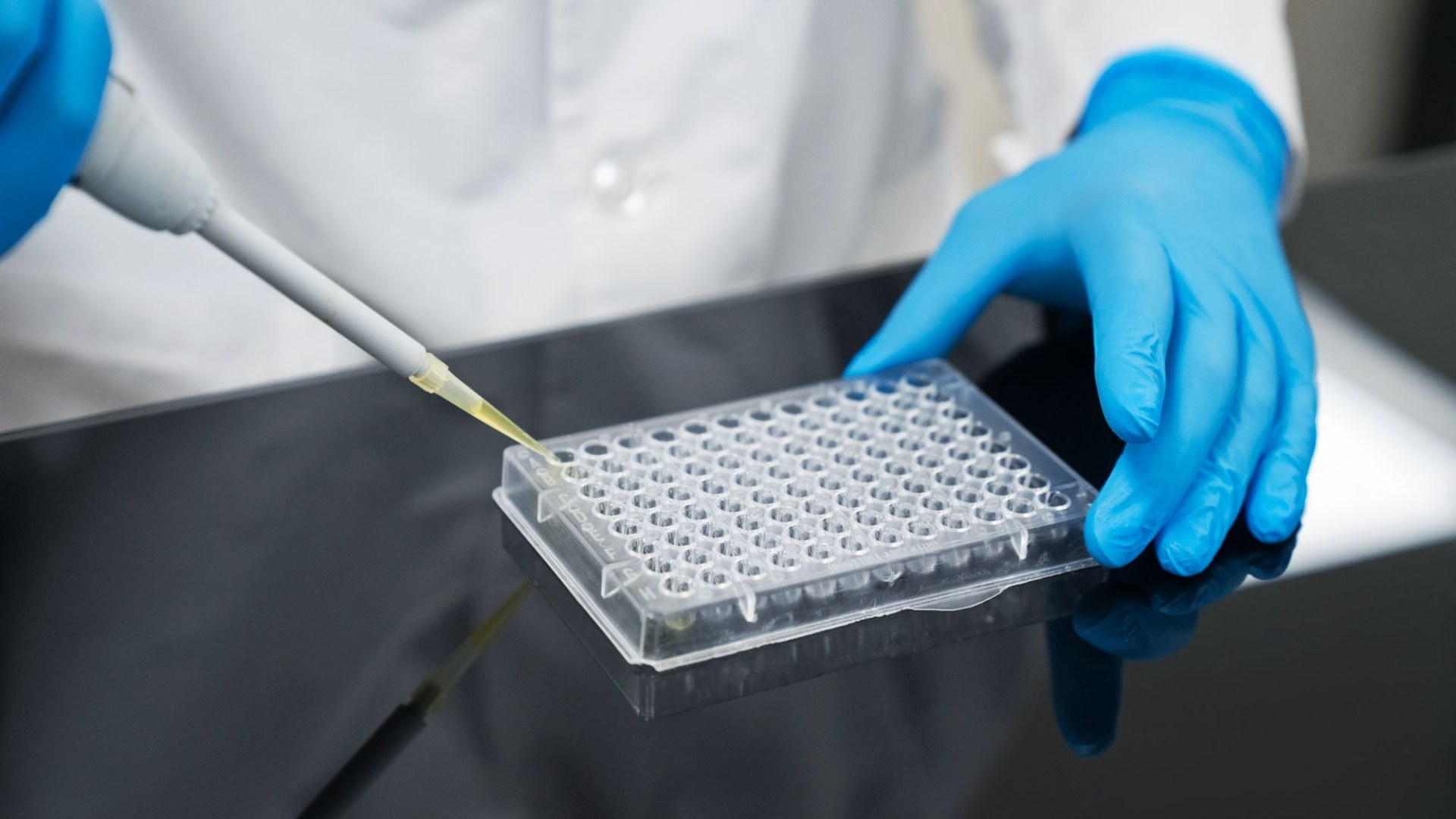A MAN diagnosed with a rare liver disease and inflammatory bowel disease (IBD) is receiving weekly poo transplants to treat the conditions in a world first.
Rick Dallaway, from Birmingham, is the first person recruited in a trial testing whether faecal microbiota transplantation (FMT) can ease liver disease symptoms.
1
Known as the FARGO clinical trial, it aims to improve quality of life for patients living with primary sclerosing cholangitis (PSC), an uncommon form of liver disease bile where ducts inside and outside the liver decrease in size due to inflammation and scarring.
It can occur on its own but it’s often linked to inflammatory bowel diseases like ulcerative colitis or Crohn’s disease.
Previous research has shown that FMT can help treat IBD as well as bacterial infection Clostridioides difficile.
Dr Palak Trivedi, a clinician scientist at the National Institute for Health and Care Research (NIHR) Birmingham Biomedical Research Centre who’s leading the study said: “We are very excited to have our first patient joining this innovative trial.
“There is currently no cure or medication for PSC, and this is the first time worldwide that FMT treatment is being investigated for patients with the disease.”
Rick is the first person to participate in the study, but University of Birmingham researchers are aiming to recruit 58 patients across Birmingham and England.
They will so do with the help of other participating sites, including Royal Free London, St Mark’s Hospital, Imperial College London, and Norfolk and Norwich University Hospitals NHS Foundation Trust.
People who take part in the study will receive a once-a-week poo transplant or placebo for eight weeks.
Stool collected from healthy donors will be “refined” in a laboratory before being transferred to the bowels of people with PSC, a University of Birmingham press release said.
Participants will first receive a transplant via a routine colonoscopy and then be given the remaining seven via an enema.
“We are grateful to our patients for helping us in our mission to find new treatments that may significantly improve the lives of people affected by this devastating disease,” Dr Trivedi said.
Rick was first diagnosed with with PSC and IBD in January 2016 after experiencing weight loss, fatigue, night sweats and brain fog for months.
“The diagnosis came only a matter of weeks since visiting my GP,” he recalled.
“I was lucky that I received a diagnosis quickly because I have since learned that some patients have to wait a long time to get an accurate diagnosis of PSC, usually because they are unable to be seen by a hospital with the specialist staff.
“At the time it felt like a ‘double whammy’ being diagnosed with two conditions at the same time – PSC and IBD.
“It felt like my IBD was the more serious of the two because I was having unpleasant symptoms and I was pleased that I was given medication to bring this under control.”
What are faecal microbiota transplants (FMT)?
FAECAL microbiota transplantation (FMT) is also called a stool or poo transplantation.
It’s a procedure that collects faeces from a healthy donor and introduces them into a patient’s gastrointestinal tract, usually performed by colonoscopy.
It can be used to treat:
- Diarrhoea caused by a type of bacteria called Clostridioides difficile (C diff)
- Symptoms caused by ulcerative colitis
FMT is thought to work by helping to rebalance the bacteria and other organisms (the microbiota) in your intestines.
A healthy digestive tract has thousands of bacteria, which are helpful to digestion or harmless in most cases.
But taking antibiotics for certain conditions can kill off many of the good bacteria in the colon, allowing bad bacteria, called C diff, to take over.
C diff can cause fever, diarrhoea and cramping.
Poop transplants are sometimes used to treat this condition, with studies showing that they’re more effective at preventing C diff reinfection compared to antibiotics.
What are the risks of FMT?
As FMT is made from a bodily fluid, there is a very small risk of harmful pathogens being transferred from the donor to the recipient.
This risk is minimised by getting donors to complete a screening questionnaire similar to those used at blood banks and for organ or tissue transplants.
Common side effects include:
- Reflux
- Tummy bloating
- A change in bowel habits (poo either become looser or harder to pass)
- A change in the smell of your poo
Occasionally patients will develop sickness or diarrhoea.
Poo donors are usually healthy volunteers. They must:
- Be tested for a wide range of bacterial and parasitic infections
- Be free of health problems
- Lead a healthy lifestyle
It’s not advised you try poo transplants at home, as your donor can’t undergo the same strict screening they would under healthcare settings.
Sources: Guy’s and St Thomas’ NHS Foundation Trust, Johns Hopkins Medicine
Rick has continued to suffer with fatigue, brain fog and mild itching since his PSC diagnosis.
He heard about the FARGO trial through appointments with the clinic at the Queen Elizabeth Hospital and signed up as its very first patient.
“The trial resonated with me as I have an interest in the microbiome and its effect on wellbeing, so it seemed the perfect trial for me,” Rick said.
“The trial requires enemas and colonoscopy so it isn’t as easy as taking a tablet, but it is worth it to further our understanding of this disease and I strongly believe there will be some good data coming out of this trial to benefit everyone in the PSC community.
“I am patient number one on the trial and have just completed the most demanding part of the trial which requires an initial assessment followed by eight weekly visits, all of which require a treatment of FMT (or placebo).
“Next, I will have appointments every three months or so until the trial ends 48 weeks after my initial screening.”
He described his experience with the trial so far as “extremely positive” and said he’s looking forward to seeing its results.
Dr Catriona Crombie, Head of Rare Disease at LifeArc, adds: “Should this trial show that FMT works well, PSC Support will be advocating for patients to access FMT as early as possible.
“We hope this means it will be making a difference to patients within five years after we’ve completed this work.”
It comes after news that a woman gave herself DIY faecal transplants using her brother and boyfriend’s poop to treat her IBS – developing a new set of health issues.
Meanwhile, a man claimed to go through menopause after doing DIY poo transplants using his mum’s faeces to cure him of his debilitating Crohn’s disease.
Experts stress that you shouldn’t do DIY faecal transplants at home.
What are the symptoms of primary sclerosing cholangitis (PSC)?
PRIMARY sclerosing cholangitis (PSC) is a rare, immune related disease that affects bile ducts and liver.
In PSC, bile cannot flow out of the liver properly due to narrowing’s in the bile ducts.
Most people with PSC also develop inflammatory bowel disease (IBD) – such as Crohn’s disease and/or Ulcerative colitis – at some point in their lifetime.
PSC is highly variable between people and symptoms can come and go over time.
People may experience:
- Feeling tired (fatigue)
- Having difficulties concentrating (‘brain fog’)
- Fever
- Feeling generally unwell
- Itching (particularly over the palms of the hands and/or soles of the feet)
- Yellowing of the skin or whites of the eyes (jaundice)
Others may be diagnosed with the condition after routine tests for IBD show abnormal liver blood results.
Source: Guts UK




